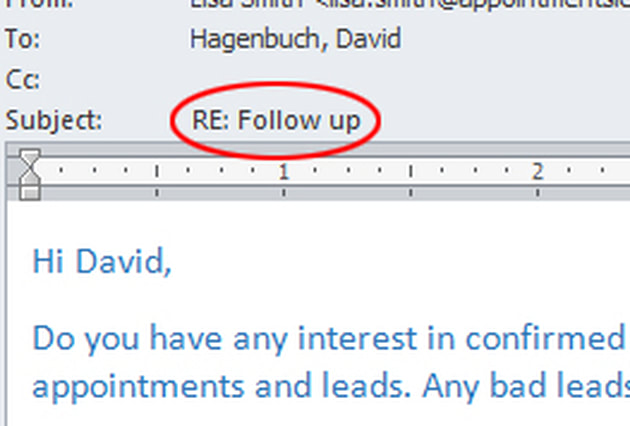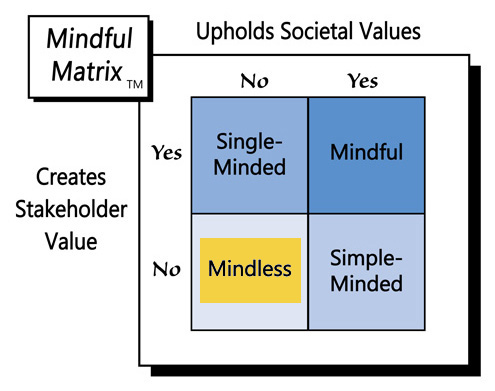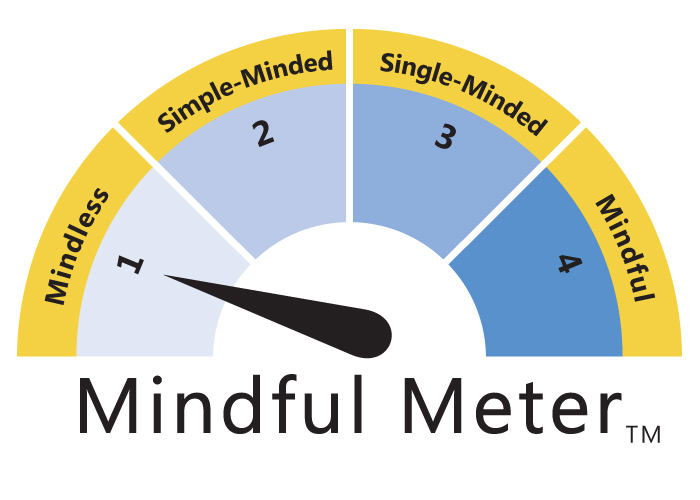For instance, I recently received an email with the subject line “RE: Follow up.” Although I didn’t recognize the sender, I opened the email, reasoning that I may have forgotten about some previous correspondence, which wouldn’t have been the first time. After all, the subject line gave two good reasons to believe that the email was a continuation of some prior communication:
1) RE: suggested that this email was being sent in reply to a prior email
2) Follow up: implied that some earlier communication had preceded this email
As you probably guessed, I was duped. Fortunately the email wasn’t malicious (no virus, etc.); however, the email’s first paragraph confirmed that it wasn’t from anyone I knew, nor was it about any existing issue:
“Hi David,
Do you have any interest in confirmed scheduled appointments and leads with your target audience? We generate leads and then schedule call with the lead. We charge you only for qualified appointments and leads. Any bad leads or cancelled appointments will be replaced or non-chargeable . . .”
Although the subject line suggested otherwise, the email was a new, unambiguous solicitation sent by a business development executive.
Managing the deluge of emails that flood our inboxes each day has become a formidable task for many of us. We work to perfect approaches for swiftly scanning and interpreting subject lines, deleting those emails that do not comport. So how does an email marketer avoid having its messages summarily screened and deleted? Some resort to deception, such as the example above.
So, what’s the big deal? Isn’t a misleading email subject line the same as those internet lures, sometimes called “clickbait,” that entice us to follow an intriguing link only to find something completely unrelated to what grabbed our attention? Yes, that’s exactly the point—both are deceptive; neither should be used. People deserve to make decisions based on truthful information; they shouldn’t be tricked into taking action.
Besides appeals to honesty and integrity, an argument against deceptive emails also can be made based on the consequences of such communication. As the introduction of this piece suggested, even if people are persuaded to open the misleading messages, it seems unlikely that they would trust the perpetrators. Instead, they’ll probably be thinking: If the firm is fine with deception as its first impression, what other ethical commitments is it willing to compromise?
For these reasons, it’s hard to imagine that deceptive emails represent effective marketing that creates long-term stakeholder value. The emails are successful, however, at undermining societal values such as honor and truthfulness, which makes deceptive emails a prime example of “Mindless Marketing.”
Learn more about the Mindful Matrix and Mindful Meter.
Check out Mindful Marketing Ads and Vote your Mind!




 RSS Feed
RSS Feed